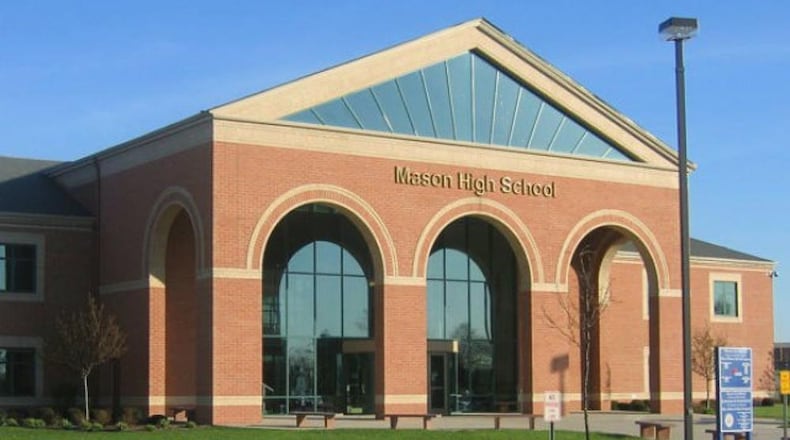Opponents, however, said the tax increase is unneeded. Voters will see a 9.96-mill operating levy on the Tuesday ballot.
If approved by voters, residents would see the proposed, two-stage increase first raise school taxes in January 2021 by 4.71 mills then another 5.25 mills in 2022, according to district officials.
But Mason school officials said due to prior taxes expiring as the mortgage on Mason High School is paid off, school taxes would only have a total increase by 4.71 mills – not 9.96-mills - above the current millage level.
If the phased-in, two-stage school tax is approved, the owner of a $100,000 home would see a $165 annual increase in school taxes beginning in January 2021.
Mason, which has 10,500 students, last passed an operating levy in 2005. It last proposed an operating levy in 2010, but saw it defeated by voters.
“The fact is, a lot has changed in the 15 years since Mason passed an operating levy,” said Mason Superintendent Jonathan Cooper.
“There are entire classes … who have graduated Mason without ever having their families have a tax increase. Costs have gone up, technology has changed. Mason City Schools have changed, too.”
Former Mason Board of Education candidate Sharon Poe said the proposed levy is not needed and accused the district of being deceptive by placing a two-stage levy on the ballot.
“Mason City School’s sleight of hand is dealing from the bottom of the deck by combining a bond levy ‘anticipated’ to be paid off with a 9.96 mill permanent operating levy,” Poe said.
But Cooper said “the facts are that when Mason Schools didn’t pass a levy a decade ago, the school board and administration did their due diligence and listened.”
“They made a lot of difficult decisions and changed the cost structure. That practice of listening to the community still holds true. We carefully looked at all the options and said we weren’t going to go to voters until we really needed it,” he said.
If approved, the levy would generate $20 million when fully phased in for Mason, which has an annual operating budget of $120 million.
Mason officials said the district currently faces a $13 million deficit in 2022.
Officials said if voters reject the new school tax it would result in $6 million in budget cuts prior to the start of the 2020-21 school year, including the elimination of dozens of teacher and other school staffers.
About the Author
